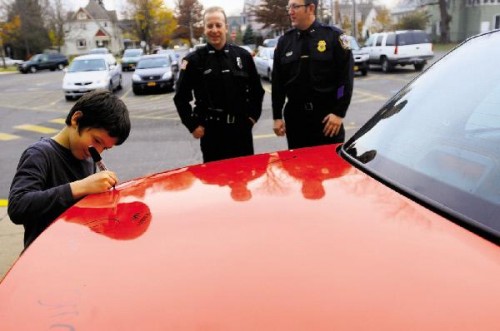A few more links because there’s a lot of interesting stuff out there.
I don’t have much time to comment on stories right now between some work commitments and my sister being in town to visit me. It’s great to have her here and I’m going to enjoy spending time with her.
 Cato Unbound is starting a series titled “If not now, when? The slow rise of of marijuana reform”
Cato Unbound is starting a series titled “If not now, when? The slow rise of of marijuana reform”
It features essays by Paul Armentano, Norm Stamper, Allen St. Pierre (coming), and Morgan Fox (coming), plus a conversation to follow.
 Report: Mexico Commits Rights Abuse in Drug War
Report: Mexico Commits Rights Abuse in Drug War
No surprise there. And of course, it’s not just Mexico. The drug war always leads to abuse…
Former Narcotics Detective Admits Drug Planting Common
And when it comes to the drug war, governments seem not to care about international law.
New report on corporal punishment for drug users
Thousands of drug users and alcohol consumers – and people found in possession of small amounts of drugs and alcohol – are subjected to judicially-sanctioned caning, flogging, lashing or whipping each year, says a new report.*
In the landmark study, the non-governmental organisation Harm Reduction International finds that over forty states apply some type of judicial corporal punishment for drug and alcohol offences. The vast majority of these sentences are handed down in countries such as Malaysia, Singapore, Iran and Saudi Arabia. According to the report, such state-sanctioned violence is in clear violation of international law. The report will be launched today in Kuala Lumpur, Malaysia.
 Does Occupy Wall Street Have a Drug Problem? – an interesting article by Jed Bickman on balancing a human-based approach with a public-relations challenge.
Does Occupy Wall Street Have a Drug Problem? – an interesting article by Jed Bickman on balancing a human-based approach with a public-relations challenge.
 California Dispensaries Moving to Block U.S. Marijuana Crackdown
California Dispensaries Moving to Block U.S. Marijuana Crackdown
SAN FRANCISCO — Lawyers for the medical marijuana industry said on Monday that they would seek court orders to halt a threatened federal crackdown on marijuana dispensaries, their landlords and marijuana growers.
In legal motions to be filed on Tuesday, marijuana distributors and some medical patients will ask federal judges in four districts to issue temporary restraining orders to prevent federal prosecutors from taking action, lawyers and a lobbyist for the industry said at a news conference here on Monday. […]
Asked to comment on the suits, Benjamin B. Wagner, the United States attorney for the Eastern District of California, issued this statement: “Unless and until ordered otherwise, we will continue to do our duty in enforcing federal narcotics laws.â€
 Joint Statement of the President of the United States and the President of Portugal. Apparently the one truly relevant topic of discussion for these two countries (differences in approach to the drug war) is just about the only thing they didn’t discuss.
Joint Statement of the President of the United States and the President of Portugal. Apparently the one truly relevant topic of discussion for these two countries (differences in approach to the drug war) is just about the only thing they didn’t discuss.



